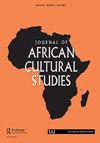切分:广州、新冠肺炎疫情与中非友好政治
IF 0.7
2区 社会学
Q2 CULTURAL STUDIES
引用次数: 4
摘要
这篇短文讨论了2020年4月广州非洲黑人疫情防控(广州事件),讲述了中非友好政治分歧加深的故事。本文认为,尽管“友谊”意识形态具有政治和外交意义,但广州事件表现出两种内部分裂:一是如何将非洲人在中国的移民问题作为一种基于友谊的款待的衍生品来处理,二是如何定义和定位种族身份问题,作为维护这种政治意识形态的社会基础设施的一种方式。据报道,2020年4月1日,一名47岁的尼日利亚男子在试图从中国南方广州一家医院的住院治疗中逃跑时,咬伤了一名中国护士,在护士的脖子和脸上留下了瘀伤和痕迹。由于这起事件发生在他的冠状病毒检测呈阳性之后,这引发了对他的暴力和冲动的广泛谴责。尽管这名男子很快就道歉,并在尼日利亚社区受到严厉批评,但暴力行为很快在购物中心、批发市场和其他非洲人聚集的地方以及互联网上引发了许多仇恨言论。此外,广州尼日利亚社区又出现了几例确诊病例,使这一医院事件进一步复杂化。很快,为了实施“精准精准抗疫”,广州地方政府开始与社区社会工作者合作,核实在广州居住的非洲公民的确切人数。为了防止病毒的进一步传播,所有在广州的非洲人都被强制隔离,无论他们是否有旅行史。然而,这个突然的决定带来了许多不满和批评。在执行这一隔离政策的过程中,许多非洲人受到了意想不到的冷淡甚至不人道的待遇:许多人被赶出他们租来的公寓和旅馆,被禁止进入餐馆和购物中心,他们的护照被没收。通过非洲人在YouTube、微信等个人媒体渠道和国际媒体,广州事件迅速登上国际头条,引发地方和国家领导人的激烈讨论,“广州事件”意外成为国际外交焦点。本文章由计算机程序翻译,如有差异,请以英文原文为准。
Cleavage: Guangzhou, Covid-19 and China–Africa Friendship Politics
This short essay discusses how Covid-19 control over black Africans in Guangzhou in April 2020 (the Guangzhou incident) tells a story of deepened cleavages in China–Africa friendship politics. It argues that despite the political and diplomatic significance of the “friendship” ideology, the Guangzhou event manifests two kinds of its internal cleavages: one lies in how to deal with immigration issue of Africans in China as a derivative of friendbased hospitality, and the other lies in how to define and position the issue of racial identity, as a way of upholding the social infrastructure of this political ideology. On 1 April 2020, a 47-year-old Nigerian man was reported to have bitten a Chinese nurse when trying to escape from hospitalization in a Guangzhou hospital in South China, leaving bruises and marks on the nurse’s neck and face. As this incidence took place after he tested positive for the coronavirus, it ignited wide-range condemnation of his violence and impulsiveness. Despite this man soon apologizing and being heavily criticized within Nigerian community, the physical violence soon triggered a lot of hate speech in shoppingmalls, wholesale markets and other places where Africans congregate and on the internet. Furthermore, this hospital incident was further complicated by a few more confirmed cases within Guangzhou’s Nigerian community. Soon, to implement the “targeted accurate measures in fighting against the pandemic” (精准抗 疫), the Guangzhou local government started to work with community-based social workers to check the exact number of African nationals residing in Guangzhou. To prevent further transmission of the virus, all Africans in Guangzhou were ordered to undergo forced quarantine regardless of their travel history. Yet this sudden decision brought much discontent and critique. In the implementation of this quarantine policy, many Africans faced unexpected inhospitality and even inhuman treatment: many were then evicted out of their rented apartments and lodged hotels, prevented from entering restaurants and shopping malls, and their passports were seized. Through Africans’ personal media channels on YouTube and WeChat and international media, this Guangzhou incident quickly made international headlines and provoked intense discussions among local and national leaders: this “Guangzhou incident” unexpectedly became an international diplomatic focal point.
求助全文
通过发布文献求助,成功后即可免费获取论文全文。
去求助
来源期刊

Journal of African Cultural Studies
Multiple-
CiteScore
1.70
自引率
10.00%
发文量
13
期刊介绍:
The Journal of African Cultural Studies publishes leading scholarship on African culture from inside and outside Africa, with a special commitment to Africa-based authors and to African languages. Our editorial policy encourages an interdisciplinary approach, involving humanities, including environmental humanities. The journal focuses on dimensions of African culture, performance arts, visual arts, music, cinema, the role of the media, the relationship between culture and power, as well as issues within such fields as popular culture in Africa, sociolinguistic topics of cultural interest, and culture and gender. We welcome in particular articles that show evidence of understanding life on the ground, and that demonstrate local knowledge and linguistic competence. We do not publish articles that offer mostly textual analyses of cultural products like novels and films, nor articles that are mostly historical or those based primarily on secondary (such as digital and library) sources. The journal has evolved from the journal African Languages and Cultures, founded in 1988 in the Department of the Languages and Cultures of Africa at the School of Oriental and African Studies, London. From 2019, it is published in association with the International African Institute, London. Journal of African Cultural Studies publishes original research articles. The journal also publishes an occasional Contemporary Conversations section, in which authors respond to current issues. The section has included reviews, interviews and invited response or position papers. We welcome proposals for future Contemporary Conversations themes.
 求助内容:
求助内容: 应助结果提醒方式:
应助结果提醒方式:


